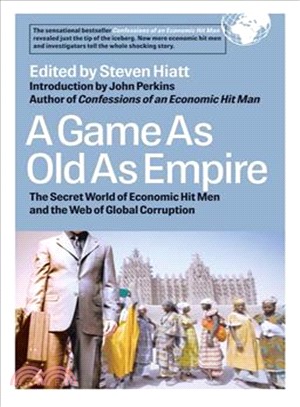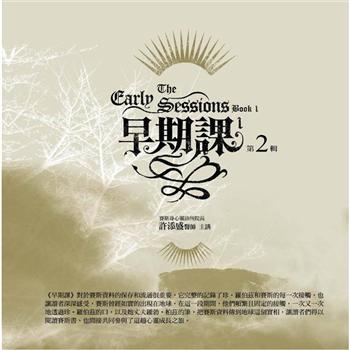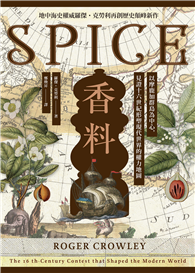作者簡介Steven Hiatt is an editor and writer who has worked for Apple Computer and Stanford Research Institute. He is the editor (with Mike Davis) of Fire in the Hearth: The Radical Politics of Place in America and is president of Editcetera, a cooperative of publishing professionals.
Ellen Augustine’s passion to create a just, peaceful, and sustainable world has led her to run for U.S. Congress and found/cofound four nonprofits focusing on media violence, mentoring at-risk youth, citizen diplomacy, and environmental restoration. She co-authored (as Ellen Schwartz) Taking Back Our Lives in the Age of Corporate Dominance from an optimism that simultaneously recognizes the urgency of our times and the power of intention and conscious action. She currently speaks on “Stories of Hope”: profiles of people who are creating businesses that increase profits by being eco-friendly, communi- ties and schools that nurture and sustain us, and initiatives that revitalize our environment (www.storiesof hope.us). She has been a voice for the common good—balancing the present and future needs of people and the planet in all decisions—on numerous radio and television shows, and in magazines such as Utne Reader. She has served on several nonprofit boards, including the National Women’s Political Caucus and the Sierra Club.
Following a varied career in industry and technical education, Steve Berkman joined the World Bank’s Africa Region Group in 1983. Hired to provide advice and assistance on capacity-building components for Bank-funded projects, he worked in twenty-one countries. Within a few years, he realized that the Bank’s approach to economic development was a failure, but his attempts to convince management of the extent of the problem went unheeded until the arrival of President James Wolfensohn in 1995. Retiring in that same year, he was called back to the Bank from 1998 to 2002 to help establish the Anti- Corruption and Fraud Investigation Unit and was a lead investigator on a number of cases. Since 2002 he has provided assistance to the U.S. Senate Committee on Foreign Relations on legislation calling for reform of the multilateral development banks and Senate consideration of the United Nations Convention Against Corruption. He is currently finishing a manuscript on the World Bank that provides an inside look at the Bank’s management, its lending operations, and the theft of billions of dollars from its lending portfolio. He lives in Leesburg, Virginia.
The English novelist Somerset Maugham famously described Monaco, the Mediterranean tax haven, as a “sunny place for shady people.” In the mid- 1980s, economist John Christensen returned to Jersey, a not-so-sunny place for shady people in the English Channel, to investigate how these offshore tax havens work. During the boom years of financial deregulation he worked as a trust and company administrator and as economic adviser to the island’s government. Though committed to principles of fair trade and social justice, he became involved in a globalized offshore financial industry that facilitates capital flight, tax evasion, and money laundering. In 1998 he resigned from his post on Jersey, moved with his family to the UK, and became a founder member of a campaign to highlight how tax havens cause poverty. He currently directs the International Secretariat of the Tax Justice Network (www. taxjustice.net).
S.C. Gwynne is executive editor of Texas Monthly, having previously been a correspondent for Time magazine. After receiving a master’s degree from Johns Hopkins University in 1977, he was awarded a teaching fellowship in the writing seminars program under novelist John Barth at Johns Hopkins. But his writing career bracketed a five-year career managing international loan portfolios in the Middle East, North Africa, and Asia, first for Cleveland Trust and later in the Hong Kong office of First Interstate Bank of California. In the 1980s, Gwynne left banking to become a freelance writer, contributing to a number of publications including Harper’s, the New York Times, the Los Angeles Times, the Washington Monthly, and California Magazine. He wrote his first book, Selling Money: A Young Banker’s Account of the Rise and Extraordinary Fall of the Great International Lending Boom in 1985. In 1991, Gwynne and fellow Time correspondent Jonathan Beatty won the Gerald Loeb Award for Distinguished Financial Reporting for their stories on the BCCI scandal for Time and the Jack Anderson Award as top investigative reporters of the year. Their subsequent book, The Outlaw Bank: A Wild Ride into the Secret Heart of BCCI, was named by Business Week magazine as one of the top ten books of the year.
James S. Henry is a leading investigative journalist, economist, and lawyer who has written extensively about economic issues, developing countries, corruption, and money laundering. His news-breaking stories have appeared in the Wall Street Journal, the New York Times, the Washington Post, The Nation, Fortune, Jornal do Brasil, Slate, and El Financiero. Henry’s investigations yielded documentary evidence that was instrumental in the 1992 conviction of Pan- ama’s Manuel Noriega; the tracking of offshore assets stolen by Paraguayan dictator Alfredo Stroessner; identifying the role played by foreign loans to the Philippines Central Bank in the enrichment of Ferdinand Marcos; and docu- menting the role played by major U.S. banks in facilitating capital flight, mon- ey laundering, and tax evasion in developing countries. He is the author of several books, including The Economics of Strategic Planning (Lexington Books, 1986) and The Blood Bankers (Avalon, 2003), and a contributor to Of Bonds and Bondage: A Reader on Philippines Foreign Debt, edited by Emmanuel S. De Dios and Joel Rocamora (TNI, 1992). His new book, Pirate Bankers, is forthcoming from Avalon in 2007. He is the author of a leading study of tax compliance by the American Bar Association’s Section of Taxation, and has testified several times before the U.S. Senate. Henry is currently managing director of the Sag Harbor Group, a strategy consulting firm. His newsblog, SubmergingMarkets (www.submergingmarkets.com), tracks developing countries and features contributing journalists from around the globe. He and his two children live in New York City and Sag Harbor, New York.
Antonia Juhasz is a visiting scholar at the Washington, D.C.–based Institute for Policy Studies and author of The Bush Agenda: Invading the World, One Economy at a Time (ReganBooks/HarperCollins, 2006), which explores the Bush administration’s use of the military to advance a corporate globalization agenda in Iraq and throughout the Middle East (www.TheBushAgenda.net). Juhasz previously served as the project director of the International Forum on Globalization and as a legislative assistant to Congressmen John Conyers Jr. and Elijah Cummings. An award-winning writer, Juhasz appears regularly in the Op-Ed pages of the Los Angeles Times as well as numerous other newspapers and publications. She is a contributing author to Alternatives to Economic Globalization: A Better World Is Possible (Berrett-Koehler, 2004). She lives in San Francisco.
Kathleen Kern has worked with Christian Peacemaker Teams since 1993. CPT “provides organizational support to persons committed to faith-based nonviolent alternatives in situations where lethal conflict is an immediate reality or is supported by public policy” (see www.cpt.org). However, teams in Haiti, Chiapas, and other locations have found that once the risk of lethal physical violence ends, the economic violence cemented in place by the cor- poratocracy can cause as much, if not more, suffering. Kern has served on assignments in Haiti, Palestine, Chiapas, South Dakota, Colombia, and the Democratic Republic of Congo. She was a member of a fact-finding delegation to the eastern regions of the Democratic Republic of Congo in autumn 2005, where she gathered information that appears in this book. Kern says that she may be unique among the contributors in that she has never taken an economics or business course, so she recently married someone with a degree in economics who could vet her articles.
Lucy Komisar is a New York–based journalist who traveled in the developing world in the 1980s and 1990s writing about movements to overthrow the des- pots who were running many of the countries she visited. When she talked to oppositionists in such places as the Philippines, Haiti, and Zaire, they in- variably said this about their local dictator: “He’s looted the country, stolen everything, and it’s all in Swiss banks.” The phrase was, as she discovered, shorthand for a parallel international financial system run by the world’s largest banks using secret accounts and shell companies in offshore havens like the Cayman Islands and Jersey to hide and move the money of dictators, corrupt officials, drug and people traffickers, terrorists, business fraudsters, stock manipulators, and corporate and wealthy tax cheats—and that their political power kept Western governments from acting against the system. Beginning in 1997, she shifted her focus to reportage about offshore banking. Much of what she has published over the last ten years (see www.thekomisarscoop. com) has never been published elsewhere. Based on her investigations, she is writing a book to be called Take the Money and Run Offshore.
James Marriott, artist, ecological activist, and naturalist, has been a co-director of PLATFORM since 1983 (www.platformlondon.org). As part of PLAT- FORM he brings together individuals from a diversity of disciplines to create projects working for social and ecological justice. Since 1996 his work has focused on the oil and gas industry and its global impacts. He is the co-author, with Andy Rowell and Lorne Stockman, of The Next Gulf: London, Washington and the Oil Conflict in Nigeria (Constable, 2005).
Greg Muttitt is a researcher at PLATFORM, a London-based organization working on issues of environmental and social justice. He specializes in the impacts of multinational oil corporations of human rights, development, and the environment. Since 2003 he has monitored and worked to expose the hid- den plans to open Iraq’s oil reserves to Western corporations for the first time since 1972. Muttitt has also researched and campaigned on British Petroleum’s Baku-Tbilisi-Ceyhan oil pipeline, including co-authoring the 2002 book Some Common Concerns, on Shell’s Sakhalin II oil and gas project in Russia’s Far East, and on a number of other oil industry activities around the world.
John Perkins currently writes and teaches about achieving peace and prosperity by expanding our personal awareness and transforming our institutions. He founded an alternative energy company that successfully changed the U.S. utility industry. From 1971 to 1981, he worked for the international consulting firm of Chas. T. Main, where he held the titles of chief economist and man- ager of economics and regional planning—but in reality was an economic hit man. He continued to keep his EHM role under wraps until the events of September 11, 2001, convinced him to expose this shadowy and secret side of his life. The resulting book, Confessions of an Economic Hit Man (Berrett-Koehler, 2004), spent more than twenty-five weeks on the New York Times Bestseller List and has sold over 500,000 copies around the world.
Bruce Rich is a senior attorney at Environmental Defense in Washington, D.C. Enjoying improbable challenges, he is involved in research and advocacy to reform export credit agencies, an undertaking that he concedes makes tilting at windmills seem by comparison an undemanding occupation. (See www. eca-watch.org.) He the author of Mortgaging the Earth (Beacon Press, Boston, and Earthscan, London, 1994), an environmental expose and history of the World Bank that was widely acclaimed in reviews ranging from the New York Times to Le Monde Diplomatique. He has worked as a consultant for numerous international organizations, has testified many times before the U.S. Congress concerning U.S. participation in international financial institutions, and has been awarded the United Nations Environment Program Global 500 Award for Environmental Achievement. His most recent book, To Uphold the World: War Globalization and the Ethical Revolution of Ancient India’s Greatest Emperor, is being published by Penguin India in mid-2007.
Andrew Rowell has often thought there must be better ways of making a living. He has been writing about economic hit men, transnational companies, and the underbelly of the global economy for fifteen years as an award-winning freelance writer and investigative journalist. Rowell has written three books, the last with James Marriott and Lorne Stockman: The Next Gulf: Lon- don, Washington and Oil Conflict in Nigeria (Constable, 2005). He writes a bi- monthly column for Alkhaleej, the second-largest selling Arabic newspaper in the Gulf and is a director of the nonprofit company Public Interest Investigations, which runs the Web sites SpinWatch.org and NuclearSpin.org. A tobacco PR man once described Rowell as “their public enemy number one,” whereas the man from Shell Oil said simply: “Oh no, not him again.”











